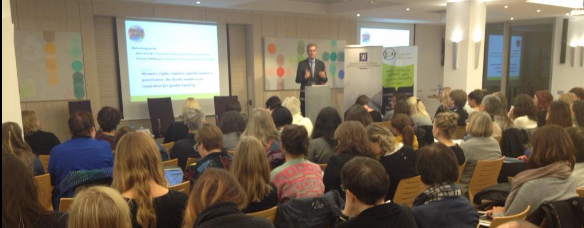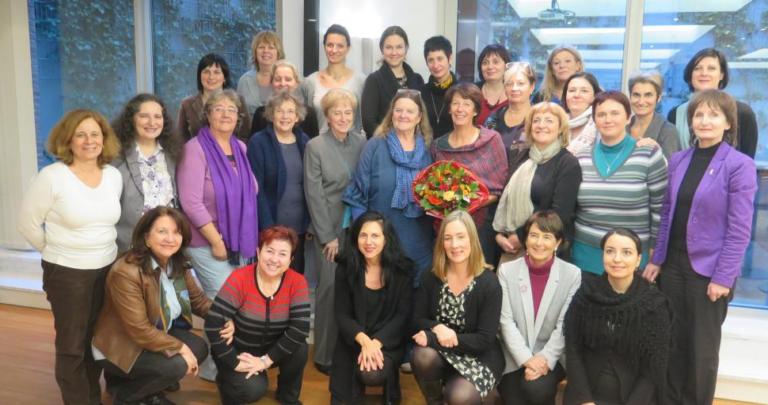[Dublin, 21 February 2013] A member organisation of the EWL, the Immigrant Council of Ireland has recently released the findings of an online survey profiling sex buyers and non-buyers in Ireland. The survey looked at the characteristics of these groups, their experiences, the reasons behind why they had or had not bought sex, and the perceived effect of a number of measures aimed at deterring the purchase of sex.
The survey was conducted as part of a wider EU funded project, ‘STOP Traffick’ focusing on demand for the victims of trafficking for sexual exploitation in five participating countries – Ireland, Cyprus, Bulgaria, Finland and Lithuania. The project commenced in late 2012 and is expected to last two years.
Participants were sourced over a three month period through a combination of social media, online chat rooms and websites. There were 411 respondents in total. Of them, 58 reported having purchased sex (14%).
The results revealed that the average Irish buyer is middle aged, earning over €20,000 (70%) with just over a fifth topping €40,000 per annum, is college educated (41%), and more than likely in a relationship (with over half of the buyers stating they were). These results were in sharp contrast to the characteristics of non-buyers – who were most likely under the age of 25, not in a relationship and earning below €20,000 per annum.
Buyers were most likely to have contacted women involved in prostitution through the internet, while the transaction was most likely to have taken place in a private apartment. Amongst younger buyers, those under the age of 25, sex was most frequently purchased in brothels or strip clubs.
The most likely destinations for purchase of sex were those with tolerant regimes towards prostitution and visible sex industries including the Netherlands, Germany, Czech Republic and Thailand.
The results also revealed that 1 in 4 buyers (24%) have encountered women involved in prostitution who they believed were trafficked, controlled or underage.
The deterrent measures which buyers identified as having the greatest deterrent quality, were contracting a disease, a criminal conviction, jail time or being named in local media. The potential deterrence arising out of a change in the legal status of purchasing sex, allowing for criminal convictions, was also clear from the reasons provided by non-buyers for not purchasing sex. The third most common response to this question was ‘it is illegal’; evidence that the perception of illegality has deterred a number of potential buyers. The most frequent response amongst non-buyers on what had deterred them from buying sex was a fear of diseases, followed by ‘it is against my beliefs’.



